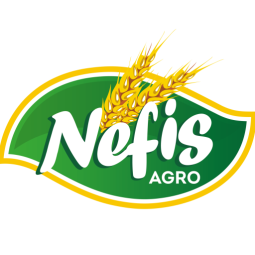
How to Import Bulgur From Turkey – Complete Export & Container Guide
Importing bulgur from Turkey has become one of the most profitable opportunities for food distributors across Africa, the Middle East and Europe. Turkey is the global leader in high-quality bulgur production, offering competitive pricing, reliable supply chains and strong certifications.
This complete guide explains the entire import process step-by-step, including HS Code 1904.30, packaging options, container loading, documentation, and CIF/FOB shipment workflow.
1. Why Choose Turkish Bulgur?
Turkey exports bulgur to more than 100 countries, providing stable quality and affordable wholesale prices. Importers prefer Turkish bulgur because of:
- High-quality milling and heat-treatment technology
- Consistent grain size and color standards
- ISO, HACCP and Halal certificates
- Strong packaging options (1 kg – 50 kg)
- Reliable shipment from Mersin Port
2. Bulgur Types Available for Export
Below are the most requested bulgur categories for retail and wholesale export markets:
- Pilavlık Bulgur (Coarse) – Perfect for African cuisines
- Köftelik Bulgur (Fine) – Ideal for kofta, salads, tabbouleh
- Esmer Bulgur – Healthy, high-fiber option
- Firik / Freekeh (optional depending on market)
All products can be exported with mixed packaging inside the same container.
3. Correct HS Code for Bulgur (Customs)
The globally accepted customs code for bulgur is:
HS Code 1904.30 – “Bulgur Wheat”
This ensures correct tax application, smooth customs clearance and proper documentation.
4. Packaging Options (Retail, Wholesale & Private Label)
- 1 kg – 2 kg – 3 kg retail pillow packs
- 5 kg & 10 kg food-service bags
- 25 kg & 50 kg PP bulk bags
- Private label (custom printed packaging)
All packaging is export-quality and suitable for tropical climates.
5. Container Loading Capacity (20FT & 40FT HC)
📦 20FT Container Loading
- 18–20 tons bulgur capacity
- Mixed items allowed
- Shorter transit and lower freight cost
📦 40FT High Cube Container Loading
- 26–28 tons bulgur capacity
- Best option for distributors with stable demand
- Lower cost per ton
All shipments depart from Mersin Port to African, Middle Eastern and European ports.
6. Step-by-Step Import Workflow
- Send product list (pilavlık, köftelik, esmer, etc.)
- Receive CIF or FOB quotation
- Confirm packaging and labels
- Production begins (7–12 days)
- Quality control + packaging inspection
- Loading into container with full photos/videos
- Export documents prepared (COO, invoice, packing list, health cert.)
- Ship from Mersin Port
7. Export Certificates Available
- ISO 22000
- HALAL
- HACCP
- GMP
- Phytosanitary Certificate
- Certificate of Origin (COO)
- Health Certificate
8. Frequently Asked Questions
What is the MOQ?
1 x 20FT container (mixed items allowed).
Can you mix bulgur and pulses?
Yes—lentils, chickpeas, beans, freekeh and bulgur can be loaded together.
Do you export to all African ports?
Yes—Ghana, Togo, Benin, Côte d’Ivoire, Kenya, Tanzania, Somalia, Nigeria and more.
9. Request Price or Sample
If you are searching for a reliable Turkish bulgur supplier with stable quality, competitive pricing and export experience, you can contact us for a full quotation.
Request CIF or FOB prices today.

